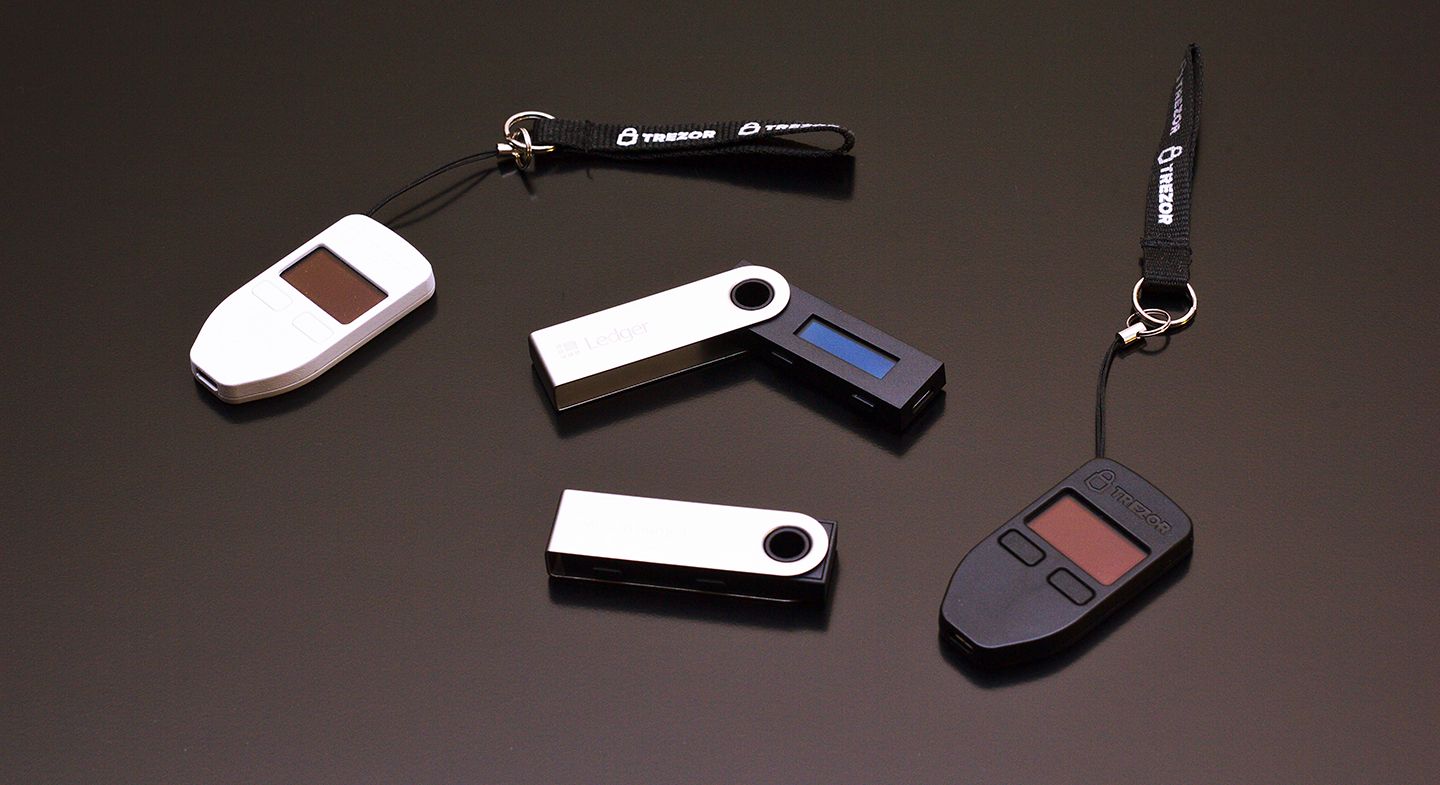Security and convenience are in an inverse relationship, where greater security means less convenience and vice versa. It is valid for every domain of human life, from doors to your apartment to your crypto assets. The optimal solution provides a high standard of security combined with usability and user-friendly interface. When it comes to keeping your cryptocurrencies safe, there's no better way to do this than to use a hardware walletHardware Wallet
A physical device that stores private keys.
Cold Storage
In the cryptocurrency sphere this term refers to storing cryptocurrency in a location that is offline and thus inaccessible by anyone on the internet.
Security and convenience are in an inverse relationship, where greater security means less convenience and vice versa. It is valid for every domain of human life, from doors to your apartment to your crypto assets. The optimal solution provides a high standard of security combined with usability and user-friendly interface. When it comes to keeping your cryptocurrencies safe, there's no better way to do this than to use a hardware walletHardware Wallet
A physical device that stores private keys.
Cold Storage
In the cryptocurrency sphere this term refers to storing cryptocurrency in a location that is offline and thus inaccessible by anyone on the internet.
When it comes to keeping your cryptocurrencies safe, there's no better way to do this than to use a hardware wallet.
Not your keys, not your cryptocurrencies
The most common way to acquire cryptocurrencies is to buy them on an exchangeExchange
Online platforms on which individuals can buy and sell cryptocurrencies.
Private Key
Private keys are used to spend cryptocurrencies.
Different ways of storing your private keys
As mentioned before, you can store your keys (or any other information) securely, or comfortably. Those tools for storing and operating your cryptocurrencies are called walletsWallet
Software or devices that contain public and private keys for storing cryptocurrencies
Storing your coins on the exchanges is one of the most common beginner mistakes. Almost every day media inform us that another exchange got hacked, the owner disappeared with the crypto or died, taking the access to the cryptocurrencies to the grave with him. If you keep your assets on an exchange, they are exposed to every danger of the internet, starting with the cyber attacks, hacks, human errors or malice.
Software and mobile wallets may seem like a good compromise between security and usability, but with the rising amount of malware and hacks, they are not a very secure option. Furthermore, the moment you lose possession of your computer or mobile phone, your crypto is lost forever. You probably remember the epic tale of an early crypto adopter whose parents thrown his PC with hundreds of bitcoins in the trash. And how many times have you lost or broke your phone? Vulnerabilities of PCs and phones are well known, and if you keep your private keys there it’s just a matter of time before you lose them.
Be your own bank
Hardware wallets offer a much more thorough level of protection than previously mentioned types of wallets. These physical devices enable users to take access to their cryptocurrencies into their own hands and store them in a much-harder-to-hack environment.
With hardware wallet, you are in physical possession of your cryptocurrencies. Hardware wallet is a single-use computer that stores your private keys and other information. It provides a full and impenetrable level of isolation between your private keys (coins) and your easy-to-hack computer or phones. Its function is similar to the generator of the codes you get from your bank. Furthermore, it is backed up with a paper back-up (seedphrase) that can be used to restore the whole wallet, with all the information it possesses, in case you lose or destroy it. The hardware wallet is the real bank, owned and operated solely by you, in your pocket.
Different types of hardware wallets
The very first hardware wallet was invented in 2011 by Czech crypto-enthusiasts, known as “Stick” and “Slush”. Trezor One created a standard that is used by other hardware wallets. It is based on open-source software and hardware, with a community of researchers, white-hat hackers and security auditors always improving the security. The younger brother, Trezor Model T, featured a touch-screen and created another standard for the hardware wallets. Trezor hardware wallet code is used in tens of other hardware wallets, from KeepKey to Archos.
It is also used by Ledger - the French manufacturer is using the open-source Trezor code to some extent - for their products, the Ledger Nano S, Ledger Nano X, and Blue.
Trezor is surely one of the best choices you can make if you’re looking to invest in the security of your cryptocurrency assets.
- Own a website? Link to this article!
- Willing to spread the love? Share it on social!




















